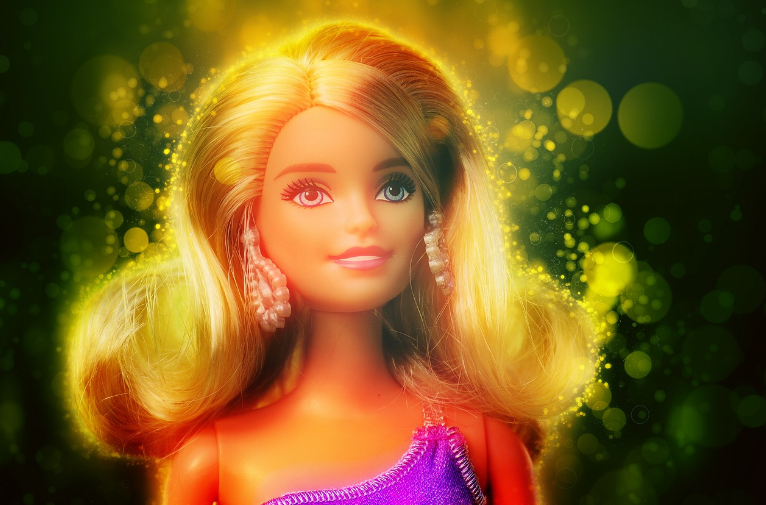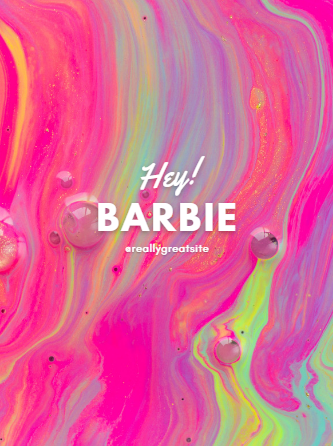The Barbie Movie presented an electric explosion of neon colors while embodying the essence of the 80s in bold patterns and textures. The movie’s coloration of the unmistakable Barbie Pink consequently caused a pink paint shortage, and during its opening weekend, the film exceeded projections by grossing $155 million. This cinematic feature has taken the world by storm, but what messages can we take away from it?
The Power of Corporations
Since its humble beginnings in a garage in 1945, Mattel has built a reputation for its iconic brands. Despite this, Mattel encountered difficulties before the release of the Barbie movie. As digital toys gained popularity, traditional toy manufacturers had to deal with the competition.
The Barbie movie was a promising game-changer for Mattel. The company generated excitement for the film through a large advertising campaign.
After the release of the movie, Mattel experienced a jump in stock value and investors responded positively to the film. Its success has opened doors for Mattel with new merchandising and licensing opportunities. The company has also announced a list of other toy movies in development that will make up a “Mattel Cinematic Universe”.
The success of the Barbie movie shows us the impact of strategic marketing and the importance of major corporations adapting to change and finding new ways to engage their audiences.
The Nostalgia of Barbie

Source: Barbie Doll Toy Girl – Free photo on Pixabay – Pixabay
Barbie toys are referenced often throughout the movie to represent the dreamy nostalgia of the franchise. Many of us can remember driving the classic Barbie Jeep, playing with Barbie’s Dream House, and even the controversial “pregnant Barbie”.
The Barbie movie brought these nostalgic memories to life. Mattel used the nostalgia of the Barbie brand to reach children and adults alike.
The use of nostalgia reminds us of the joy and dreams of our youth, while also promoting inclusion, adaptability, and the importance of keeping our dreams alive as we grow older.
The Historical Objectification of Barbie
The first Barbie debuted at the World Toy Fair in 1959, wearing a Zebra print bikini and high-heel stilettos.
Some refer to this version of Barbie as the “original bimbo” and believe the doll sets unrealistic expectations for impressionable young girls. In the movie, this version is known as “Stereotypical Barbie”, played by actress Margot Robbie.
The character Sasha, played by Ariana Greenblatt embodies the voice of these criticisms in the movie. After being approached by Stereotypical Barbie, she says, “You’ve been making women feel bad about themselves since you were invented.”
By depicting the “Stereotypical Barbie,” the movie acknowledges and confronts the historical stereotype of women being portrayed solely as objects of beauty and unrealistic ideals.
It also raises awareness of the impact that toys and media can have on shaping societal norms Iiand the importance of promoting positive role models and diverse representations. This sends a message about the value of recognizing past mistakes and shows that even long-standing franchises can evolve and embrace more progressive values.
Connecting Femininity and Feminism
Femininity is the attributes, behaviors and roles generally associated with women or girls. Feminism is about the advocacy of women’s rights and equality.
Some argue that women who present themselves in a “dramatically feminine” way or to a traditional standard of beauty oppose the feminist movement.
The Barbie movie combines hyper femininity with feminism. Another example of this was in the early 2000s with the movie “Legally Blonde”.
The movie shows that women can embrace their femininity without compromising their feminist beliefs. By presenting characters who are hyper-feminine and strong, intelligent, and ambitious, it challenges the stereotype that femininity and feminism are mutually exclusive.
The Barbie movie offers valuable insights beyond just entertainment. Mattel has shown us the success of strategic marketing, the power of nostalgia, and has helped to raise awareness about important issues in modern society. I personally am excited to see what they do next.
Elizabeth Atkins.
Web Technician.


